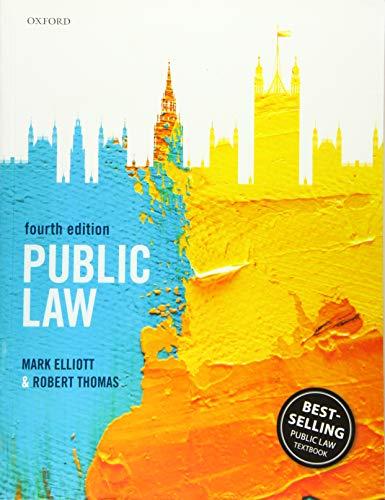Question
1- Ron Boskett, coin dealer, purchased a dime purportedly minted in 1916 at the Denver Mint; he paid nearly $45,000. The fact that the D
1- Ron Boskett, coin dealer, purchased a dime purportedly minted in 1916 at the Denver Mint; he paid nearly $45,000. The fact that the "D" on the coin signified Denver mintage made the coin rare and valuable. Boskett sold the coin to Beachcomber Coins, Inc. (Beachcomber), a retail coin dealer, for $500,000. A Officer of Beachcomber examined the coin for 15 to 45 minutes prior to its purchase. Soon thereafter, Beachcomber received an offer of $700,000 for the coin, subject to certification of its genuineness by the American Numismatic Society. When this organization labeled the coin counterfeit, Beachcomber sued Boskett to rescind the purchase of the coin. Can Beachcomber rescind the contract? Beachcomber Coins, Inc. v. Boskett, 166 N.J.Super. 442, 400 A.2d 78, Web 1979 N.J. Super. Lexis 659 (Superior Court of New Jersey)
2- On September 1, A in Portland, Oregon, wrote a letter to B in New York City offering to sell to B 1,000 tons of chromite at $48 per, ton, f.o.b. New York City, to be shipped by S.S. Malabar sailing in October, and the other sailing in December.At the time of mailing his letter of acceptance B knew of the October sailings and A knew only of the December sailing.Is there a contract? If so to which S.S. Malabar does it relate?
3-Robert McClure (seller) owned a vehicle salvage and rebuilding business. He listed the business for sale and had a brochure printed that described the business and stated that the business grossed $600,000and netted $150,000 the prior year. Fred H. Campbell (buyer) saw the brochure and inquired about buying the business. Campbell hired a CPA to review McClure's business records and tax returns, but the CPA could not reconcile them with the income claimed for the business in the brochure. When Campbell asked McClure about the discrepancy, McClure stated that the business records and tax returns did not-accurately reflect the cash flow or profits of the business because it was such a high-cash operation, with much of the cash not being reported to the Internal Revenue Service on tax returns. McClure signed a deed that stated that the true income of the business was as represented in the brochure.
Campbell bought the business based on McClure's representations. However, the business, although operated in substantially the same manner as when owned by McClure, failed to yield a net income similar to that warranted by McClure. Evidence showed that McClure's representations were substantially overstated. Campbell sued McClure rescission and damages for fraud. Who wins? Campbell v. McClure, 182 Cal.App.3d 806, 227 Cal.Rptr. 450, Web 1986 Cal. App.Lexis 1751 (Court of Appeal of California)
4- Bagwell (seller), who knew that his house was infested with termites, wanted to sell the house. He hired a carpenter to cover up and conceal the termite damage, with the result that reasonable inspection would not reveal the true condition of the house. He told Beagle (Buyer) that the house was in good condition and was free of termites. Beagle entered into a contract for the purchase of the house. Later when he learned that there were termites, Beagle sued for recession & damages for fraud. Was he entitled to such damages? (Beagle v. Bagwell, (Fla.) 169 Lo.2d 431)
Step by Step Solution
There are 3 Steps involved in it
Step: 1

Get Instant Access to Expert-Tailored Solutions
See step-by-step solutions with expert insights and AI powered tools for academic success
Step: 2

Step: 3

Ace Your Homework with AI
Get the answers you need in no time with our AI-driven, step-by-step assistance
Get Started


